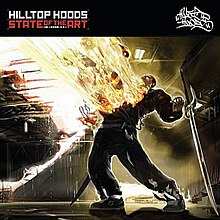후사키즘
Husakism| 시리즈의 일부 |
| 마르크스-레닌주의 |
|---|
 |
후사키즘(체코: 후사키스무스; 슬로바키아: 후사키즈무스)은 체코슬로바키아의 정치인 구스타브 후사크와 연관된 이데올로기로,[1] 1950년대 카롤 바시렉에 의해 후사크의 "부르주아적 민족주의"를 규탄하기 위해 처음 사용되었다.후사크, 바실 비작 [4]등이 1969년부터 1989년까지 체코슬로바키아의 국가이념인 후사크의 '정상화'[2]와 연방주의 [3]이데올로기에 더 자주 사용된다.후작의 정권은 또한 신 스탈린주의자로 [5]묘사되어 왔다.
레퍼런스
- ^ "Dismissals In Slovakia Reflect Still Prevailing "Bourgeois Nationalism"".[영구 데드링크]
- ^ Johnson, Elliott; Walker, David; Gray, Daniel, eds. (2014). "Communist Party of Czechoslovakia (CPCZ) / Komunistická Strana Československá (KSČ)". Historical Dictionary of Marxism (2nd ed.). Lanham; Boulder; New York; London: Rowman & Littlefield. p. 92. ISBN 978-1-4422-3798-8.
- ^ Wilczynski, Jozef, ed. (1981). "Czechoslovak Socialist Republic". An Encyclopedic Dictionary of Marxism, Socialism and Communism. The Macmillan Press. p. 135. doi:10.1007/978-1-349-05806-8. ISBN 978-1-349-05806-8.
- ^ "Bohumil Pečinka: Listopad 1989 byl kontrarevoluce" [Bohumil Pečinka: November 1989 was a counter-revolution] (in Czech). 1 March 2005. Archived from the original on 2 November 2005.
- ^ Frucht, Richard, ed. (2000). "Communist Party of Czechoslovakia". Encyclopedia of Eastern Europe: From the Congress of Vienna to the Fall of Communism. New York & London: Garland Publishing, Inc. p. 128. ISBN 0-203-80109-1.



